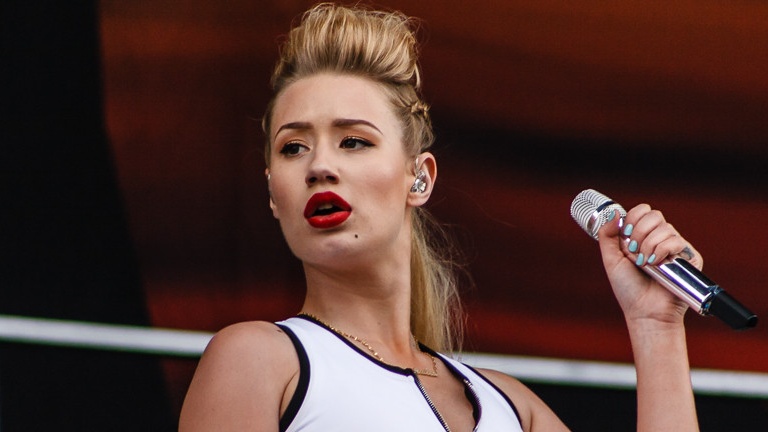Since she first emerged on the scene in 2011 rapping in a southern accent, Australian rap star Iggy Azalea has faced accusations that she was blatantly copying and mimicking Black women while making millions.
While promoting her critically-panned album In My Defense, Azalea finally answered questions about her music and cultural appropriation in an interview with Cosmopolitan for their September issue.
When Azalea was asked whether she would ever change how she raps, she was defiant and unapologetic.
“Then again, can you really say sorry and then keep doing the same shit? I’m still going to make the same type of music and still be ridiculous and larger than life,” she told Cosmopolitan reporter Jen Ortiz. “So I can’t be that f**king sorry about it.”
Critics have bashed the new album precisely because Azalea doubled down on her caricature of Black women.
In Pitchfork's review, they say that many of the songs on the album "sound like direct imitations of the rappers she admires. 'Sally Walker,' the best song on the album, features sparkling piano chords similar to Cardi B’s 'Money' (J. White produced both songs). The exhausting, Juicy J-featuring 'Freak of the Week,' sounds like a rejected track by Megan Thee Stallion, whose debut album features her own song with the Memphis rapper. She hisses 'lil’ bitch' in a way that sounds like Rico Nasty."
In the Cosmopolitan interview, Ortiz questions Azalea about refusing to apologize for years of gaffes and offensive tweets that only amplified claims that she was an outright culture vulture. But Azalea was resolute and said her fans liked her for the way she rapped and that if she changed, she might lose them. She even takes a page out of Kanye West's book and calls her most ardent fans "free thinkers" in the interview.
"They have to be because if you thought what everybody else thought, you probably wouldn’t be a fan of mine,” she said.
In addition to not apologizing, the 29-year-old made a number of curious comments about cultural appropriation, basically calling it "subjective" depending on the person.
“You could ask one person of the same race, ‘Does this affect you?’ and they will say 'Yes', but another person will say 'No,'" she said. "They could be from the same place, same everything, but have different perspectives about it.”
The article notes that when she was initially pushed on the topic by Complex in 2013, she flippantly responded: “If you’re mad about it and you’re a Black person, then start a rap career and give it a go too. Or maybe if you’re Black, start singing like a country singer and be a white person. I don’t know. Why is it such a big deal? This is the entertainment industry. It’s not politics. You should be more concerned about the message, not the voices saying it.”
After the Cosmopolitan article came out on Tuesday and the internet slammed her comments, she responded on Twitter by saying she was misquoted.
I noticed in the article some of our conversation was attributed to subjects I wasn’t asked about/ intending to commenting on.
To clarify:
I was asked how I deal with hate.
My response? it’s easier to deal with when you consider art subjective/a matter of personal taste ????????♀️— IGGY AZALEA (@IGGYAZALEA) August 7, 2019
Anyhow, I feel much better now that I’ve put that out there &
Again, Thankyou so much I’m very grateful to everyone for the opportunity. ????????— IGGY AZALEA (@IGGYAZALEA) August 7, 2019
Azalea's album has gotten tons of bad reviews and largely flopped after it was released on July 19. The album sold only 11,261 total album equivalent units in its first week and has fallen out of the charts since its release.
"The album is stacked with cartoonish approximations of what she thinks a rap song should sound like: shivers of bass, the occasional 'skrrrt,' Mad Libs of designer brands and bodily fluids," Pitchfork wrote in their review of the album.
"For an album so concerned about 'haters,' the worst we see comes from Iggy herself. 'They call me racist/Only thing I like is green and blue faces,' she sneers, managing to corrode and embarrass herself in one line. Rather than penitence, she offers only a garish caricature. Her only defense is to further offend."
